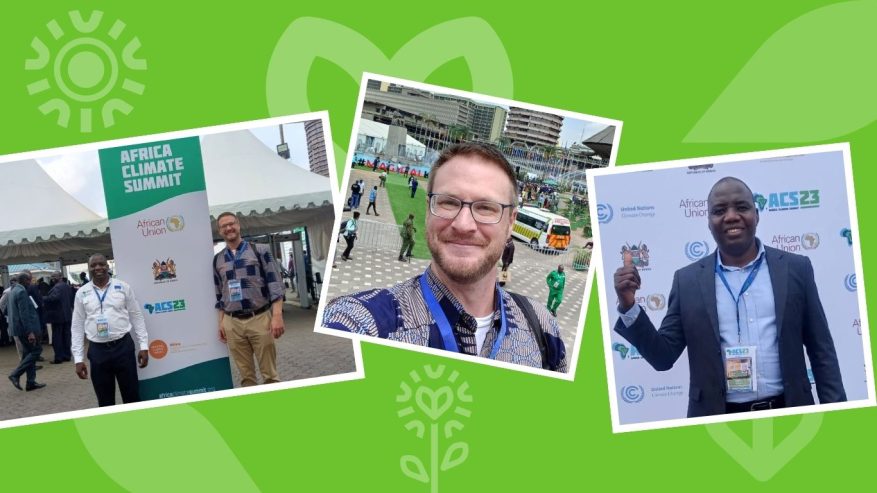Climate finance, climate adaptation and land and forest restoration were all high on the agenda at the first-ever Africa Climate Summit, held in Nairobi, Kenya from 4-6 September 2023.
The event brought together governments, organisations and other key players to discuss how to best address the effects of climate change in countries throughout the African continent.
After three days of talks and events, the Africa Climate Summit adopted the Nairobi Declaration. This text is aimed at officially defining and uniting the agreed position of the 54 countries that make up the African continent, ahead of the upcoming COP28 event in Dubai in November. Amongst other measures, the Nairobi Declaration calls for a global carbon tax, to ensure financing for climate-related investments.
At the event, African Presidents also called for financial reforms and debt renegotiations amidst the fight against climate change. Indebtedness of African countries limits their capacity to fight climate change and increases over-dependence on aid.
People living in Africa are the least responsible for, but the most affected by climate change. The African continent is currently only attracting around 12% of the finance necessary to cope with an increasingly hostile climate.
Working with smallholder farmers to help combat the worst effects of climate change is vital to our work at Self Help Africa. Our Senior Global Climate Advisor Edward Meleki, and Global Carbon Coordinator Zach Lager were at the Africa Climate Summit, and share their reflections and analysis below:
Edward Meleki, Senior Global Climate Advisor
I was really excited to be part of the first-ever Africa Climate Summit. Most of the side event discussions I attended, focused on building climate resilience across Africa and to address the following questions:
- How do we restore degraded farm lands and forests?
- How do we restore freshwater ecosystems that are being degraded and silted in most African countries?
- How do we build credible carbon removals in Africa?
- How do use organic waste to produce renewable BioLPG?
Critical to mention too, is the focus of conservation organisations to make sure that the freshwater challenge is addressed. And also, enhancing tree growing on farming landscapes – to ensure that these landscapes can be more resilient to climate change.
Climate justice was also high on the agenda. For me, this comes back to – at Self Help Africa, how do we ensure that the farmers we work with, benefit from the climate-related interventions that we provide?
My advice and recommendation is that governments need to be strong. We need a set of frameworks that will work for Africa. A set of regulations and bye-laws that will improve the implementation of projects and strategies, to make sure that the effects of climate change are properly addressed.
There was a lot of promising discussion over the three days of the event. But we need action. I hope to see real progress for climate justice for Africa at COP28, in line with the Nairobi Declaration. I also hope to see the Africa Climate Summit held again in another few years, so we can measure our achievements and continue to push for progress.
Zach Lager, Global Carbon Coordinator
It was wonderful to be part of the inaugural Africa Climate Summit. There were so many different types of leaders and activists from all over the continent sharing inspiring stories and future opportunities.
Here are my five key takeaways from the event:
- We need to move beyond minimalist views and more clearly articulate what climate justice means for Africa, particularly in the context of carbon finance.
- We need to figure out how to balance private sector interests with the public good. We can achieve this through innovative models and arrangements.
- How can we redesign financial systems, to get money flowing to much-needed climate innovation?
- Effective partnerships based on trust and shared purpose are key.
- We must include young people and women, and foster innovation and technology in the climate space.
Bringing all of the above together, is the need to integrate climate justice with private sector interests as well as government policy and structures. We need to do better at integrating all of these to create an enabling ecosystem for real climate action to take place.
The Africa Climate Summit was truly special in bringing together everyone from heads of state to community activists, to discuss the climate agenda and how we can move forward. I’m really looking forward to seeing how this discourse and rhetoric actually turns into action.

